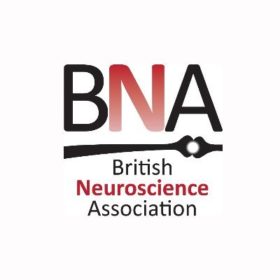All the events here are relevant to people working in dementia research. If you would like to add your own you can submit an event

- This event has passed.
Glial changes chronically after Focal Stroke, Dr Jill Fowler
February 20 @ 2:00 pm - 3:00 pm

The BNA is delighted to be working with Miltenyi Biotec to host this webinar taking place on Tuesday 20th February, 2-3pm (GMT), with Dr Jill Fowler of the University of Edinburgh discussing global disease-associated glial changes after focal stroke.
A focal ischaemic stroke is associated with the development of immediate or delayed cognitive impairment and increased risk of dementia. In the chronic response to stroke, reactive glial cell changes (astrocytes and microglia/macrophages) spread throughout the brain to areas remote but anatomically connected with the stroke lesion. These are associated with slowly evolving degenerative pathologies such as secondary neurodegeneration and Wallerian degeneration that may underpin cognitive decline after stroke.

Dr Jill Fowler
Dr Fowler has established mouse models of ischaemic stroke to study global changes to glial cells in combination with post-mortem tissue from individuals with a history of stroke. In the webinar, Dr Fowler describes glial cell heterogeneity and disease-associated changes studied with single-cell RNA chronically after stroke in mouse and human. Furthermore, she describes experiments to model risk factors associated with cognitive decline after stroke including ageing and co-morbid Alzheimer’s Disease pathology and their effects on glia and cognition.
Dr Jill Fowler is a senior lecturer at University of Edinburgh, and a former Alzheimer’s Society junior fellow and Alzheimer’s Research UK senior fellow. Her research focuses on identifying disease mechanisms, as a basis for treatments, in cerebrovascular disease, brain injury and dementia using preclinical models in parallel with studies in human post-mortem tissues. She has developed mouse models to study the long term consequences of stroke on pathology and cognition and is currently studying glial cell changes with methods including single cell sequencing.

